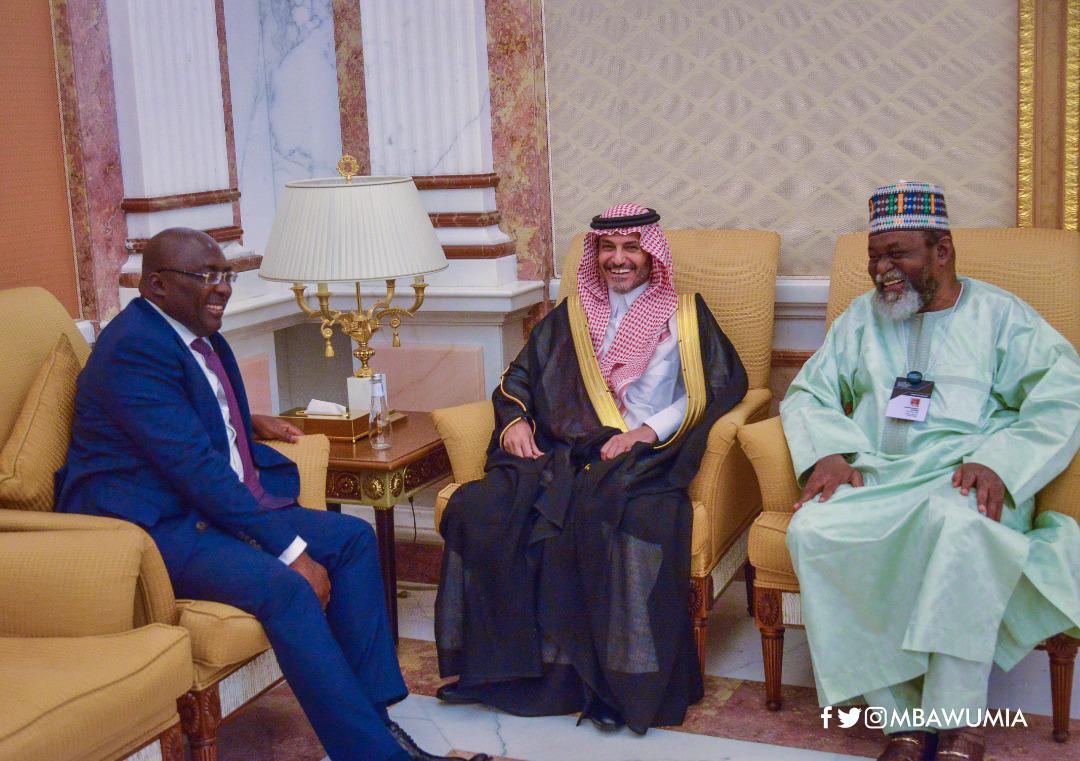Ghana and India appear to be following similar development path in the way in which both economies are run by their current leaderships.
Speaking at the ongoing Future Investment Initiative (FII) summit in Riyadh, Saudi Arabia on Tuesday, 29th October, Prime Minister of India, Narendra Damodardas Modi, underscored the need for countries to speedily embrace the Fourth Industrial Revolution, as the surest bet to leapfrogging the ever changing global dynamics of development.
Prime Minister Modi stated his belief that India’s commitment to leverage on technology for accelerated growth is the key to its transformation.
He outlined some of the initiatives taken by the government of India in their economic digitization efforts. Among others, Mr. Modi highlighted the issuance of National Identification cards to all Indians, the use of mobile phone as a payments platform, and digital address systems.
“Undoubtedly, I do not see how any economy is going to catch up with the rest of the developed world without making deliberate efforts to conform to the contemporary trends of leveraging digital technology. The world is fast changing and technological innovations should define what a modern day economy should be”, Prime Minister Modi remarked.
Ghana’s Vice President, Dr. Mahamudu Bawumia who was also at the same event was elated by the conformity of thoughts expressed by speakers at the summit on digital technology as the new dawn for economic development.
In a brief interview with the media, Dr. Bawumia indicated that many of the things India is doing in the digital technology space align with what the government of Ghana has been up to since 2017.
“In Ghana, we have embarked on a progressive drive to issue national identification cards to all citizens. The process has started and expected to complete next year. We have also successfully implemented a digital property addressing system that provides physical digital addresses for every 5 by 5 square meters”, Vice President Bawumia indicated.
Dr. Bawumia believes that the combined effects of the national identity cards and digital addresses will ultimately be the solution to the problems of identification and traceability of persons and property in Ghana. According to him, these interventions are needed to also de-risk the financial sector and help in the economic formalization efforts of government.
Touching on the financial sector and the need for technological innovation, Dr. Bawumia expressed satisfaction with Ghana’s mobile money payments interoperability system which recorded over a million transactions in the month of September 2019 compared to the about 150,000 transaction a month at the end of 2016.
Launched in the year 2018, the mobile money interoperability system in Ghana has a payments architecture that allows the movement of funds across banks, mobile wallets and other payments platforms such as ezwich. With this, Ghana attains what it describes as triangular financial inclusion.
The Future Investment Initiative is an international platform for expert-led debate between global leaders, investors and innovators with the power to shape the future of global investment.
Among others, the summit focused on utilizing investment to drive growth opportunities, enable innovation and disruptive technologies, and address global challenges.












